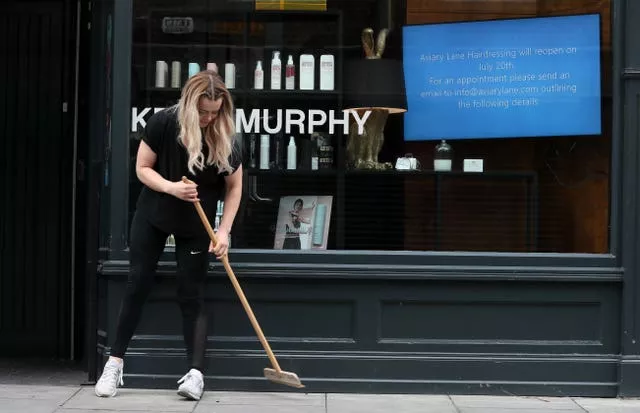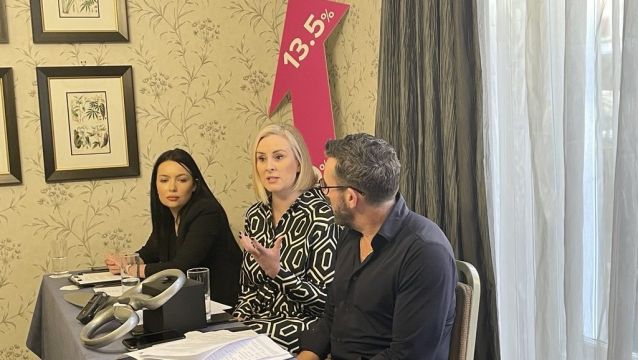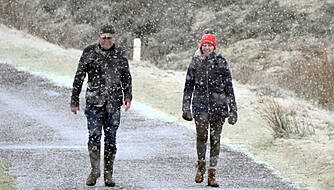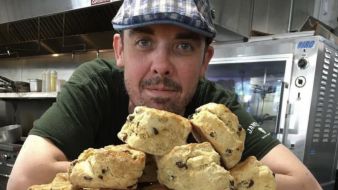Hairdressers have warned that if the Government gives the reduced tourism VAT rate the chop, then costs will be passed onto customers.
The Irish Hairdressers Federation (IHF) is calling for the Government to retain the 9 per cent VAT rate for hospitality beyond the end of next month and not return to the 2020 rate of 13.5 per cent.
The group, which represents around 500 members, said a survey it had carried out indicated there is a significant decline in demand.
Some of their members have already indicated that costs have increased by around 15 per cent since 2018 to keep up with costs.
In his role as minister for finance, Paschal Donohoe had extended the reduced VAT rate from August 2022 until February 28th, acknowledging the impact of the pandemic and increased energy costs.
Salon owners are now campaigning for the rate to be retained amid inflation and as they continue to recover from the effects of the Covid-19 pandemic.
Lisa Eccles, vice president of the IHF, said that energy costs, the cost of hair dye, and the cost of foil has increased – with the latter rising by 25 per cent.

New employment changes such as sick pay and an increase in the minimum wage has also put pressure on small businesses, she said, meaning “salons are just expected to find the money from thin air”.
“I can only speak, obviously, about my own salon and since 2018 I would say my prices have gone up by 15 per cent, and to be honest that’s not even to make profit, that is literally just to try and keep the doors open and try and keep our heads above water. And it’s barely even cutting it.”
Rossa Danagher, who has a salon in Donegal and in Sligo, said he has also increased his prices by 15 per cent.
“We actually have to explain to each client why we have done it. We’re actually apologising because we take it so personally, we have a personal relationship with these people that come into our salons on a weekly basis.
“So it’s hard for our industry, and we can’t absorb this VAT, unfortunately, it is going to go back to the consumer coming through the door.”
He said that this is the first time in 23 years operating that he is considering reducing hours and reducing staff.
“This VAT increase is actually going to be the final straw for a lot of salons.”
Mr Danagher said it would take “a good five years for us to get back on our feet” when it comes to educating staff, and that he needs more staff but cannot currently afford to take them on.

“The cost of electricity is right up there with wages, which is something that we’ve never seen before,” he said.
“This is one thing the Government can help us with. I actually cannot see why they actually don’t get on the ground, go in and talk to their local salons that are employing people – just come out and talk to see the struggles that we’re facing.
“The next time there’s an election or a campaign, you can guarantee that hair salons are the first place that every politician comes into when they’re out campaigning.
“So you know where we are when it suits you to come out when you’re campaigning for your vote.”
The IHF’s Vicky Burke said that the rate needed to be reduced if salons in small towns and villages are to be given “a fighting chance to keep their doors open”.
“Salon owners have been through the wringer throughout Covid and unprecedented inflation over the past year – salons are already struggling to stay open,” she said.
A survey carried out by the organisation indicated that 40% of its members had experienced “a downturn in demand for their services”.
“Clients (are) either looking for cheaper alternatives, such as services offered by those operating in the shadow economy, or due to clients stretching out the length of time between their appointments and visiting salons less frequently,” Ms Burke said.
Ms Eccles said: “We feel like we’re really vital in the battle to keep people coming into local villages, keep people coming into city centres, we really drive footfall into all of those places.
“You can’t digitise the haircut, you can’t put it online, but you have to go to your local salon to get your hair cut. So, chances are you’re going to go to your local coffee shop and pick up a coffee,” she said.







